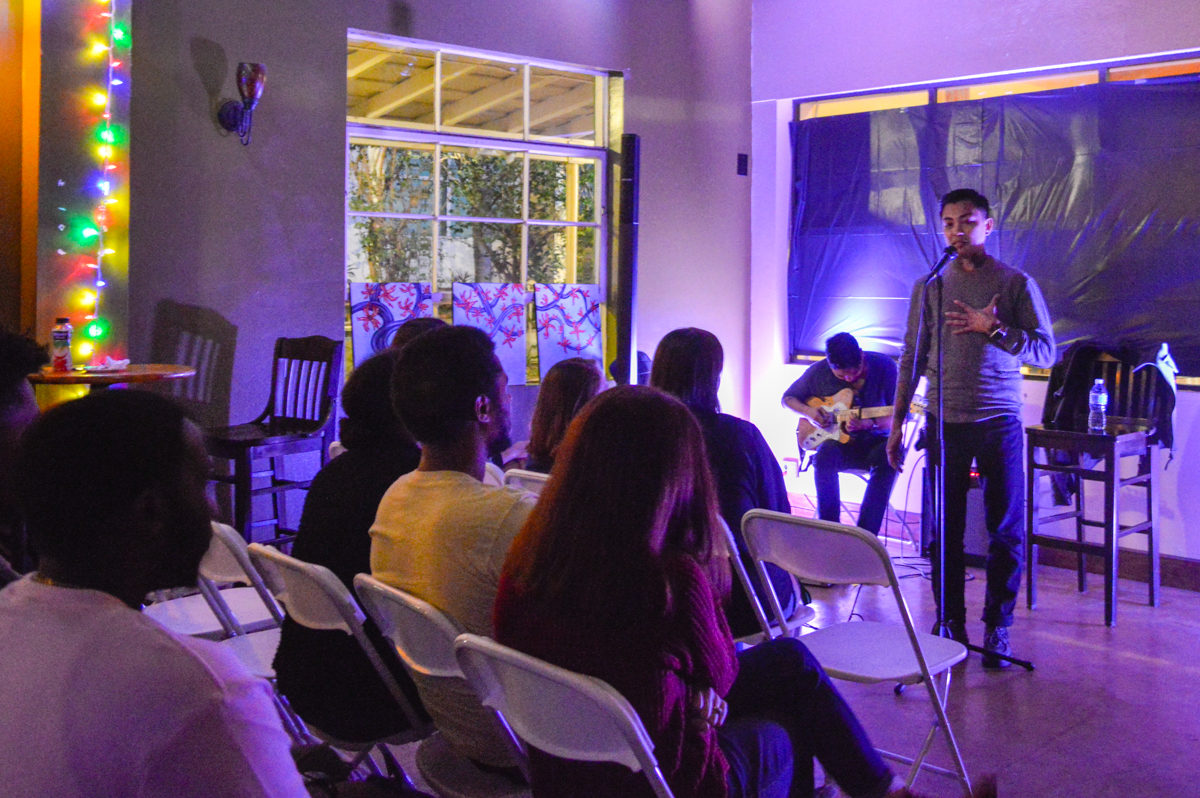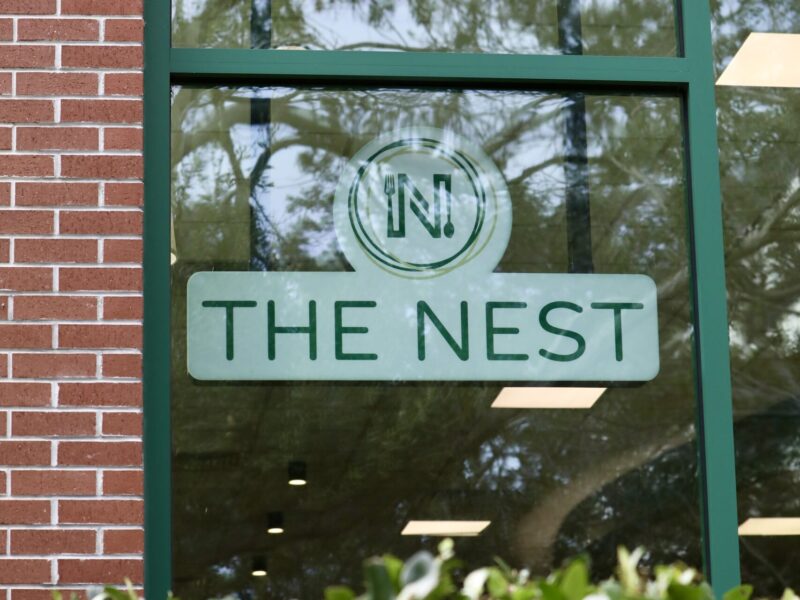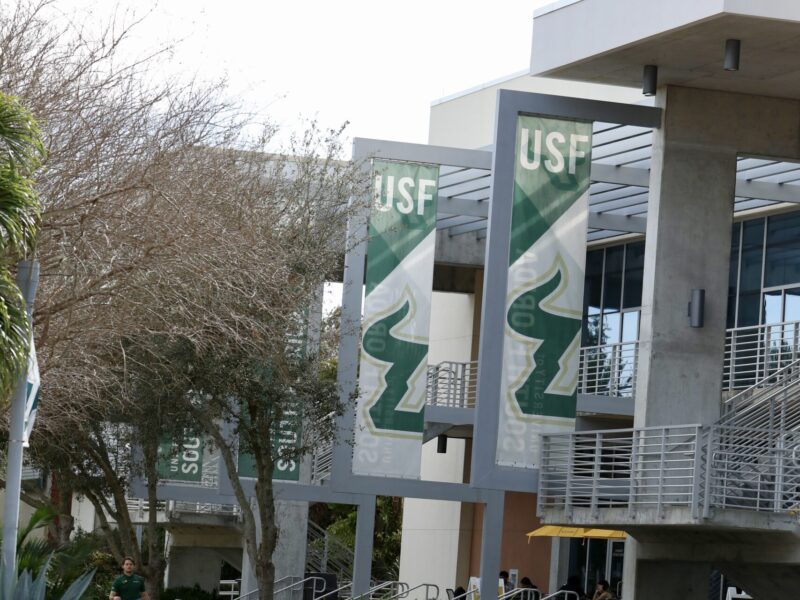The Asia Project gave a moving performance of rhythmic poetry dealing with themes of love, loss and hope. Amy Diaz | The Crow’s Nest
By Amy Diaz
When Asia Samson stepped up to the mic at the Words Unspoken poetry slam Thursday night, he asked the audience to treat the show like sex.
The crowd of about 50 students, cozy under the soft, colorful lighting in The Campus Grind, stared back at him waiting for an explanation. Was it because of the vulnerability of the poets sharing their work? The intimacy and the closeness of the group? The mood lighting?
The answer was audience participation.
“If I’m giving you moves and you’re just laying there, it’s gonna get awkward real quick,” Samson said, welcoming the audience to laugh, cry and cheer. “Any type of energy you give us is gonna be the energy we give right back.”
The audience laughed and showed engagement by snapping, nodding their heads and woo-hooing.
Samson is one-half of The Asia Project, a musical poetry act that has toured over 600 colleges since 2009. Samson identifies as a poet and part-time ninja. His brother-in-law, Jollan, makes up the other half of the act, accompanying Samson’s voice with a moody electric guitar.
They have been featured on TEDx, NPR’s Tiny Desk, and HBO. They have even shared a stage with Janelle Monae, an American singer-songwriter. This past week, they shared it with students of USF St. Petersburg.
Samson made the audience laugh even more with a series of haikus, ranging from having an itchy butthole to knowing your relationship is built on trust when you don’t clear your browser history.
And then he made the audience cry.
The rest of Samson’s poetry dealt with his battle with testicular cancer, the death of his sister and the miscarriages of his wife. The guitar in the background elevated the emotional intensity and power of each word.
One woman turned to another and mouthed the words, “I’m crying.”
Samson’s stories were heartfelt and tragic, but each poem ended on a note of strength and hope.
He talked about the irony of cancer saving his life. Growing up, he turned to God and asked to make him stronger or taller, until he finally just said: “Make me as I already am.”
In the poem about his sister, Kate, “Awakening,” he talked about his frustration with unexpected loss and the images of his parents praying nonstop. He also expressed his gratitude to have visited her just before her death and to have learned to treasure the people you love while you have them. He asked her to put in a good word about him and the rest of his family to God.
In “Bathtub,” he mourned two of his wife’s miscarriages. He talked about how unfair it felt to read about children being abused and mistreated while knowing he and his wife had so much love to give. He said he now has a 2-year-old son who teaches him things about life and beauty and love every day.
The duo also performed a 10-minute poem with the goal of it not feeling like 10 minutes. Before he began, Samson asked the audience to call out what their dream job was when they were a kid.
“Astronaut!” “Ballerina!” “Spiderman!”
For the next 10 minutes, Samson talked about his own dreams growing up: heart surgeon, architect, painter, ninja.
He talked about learning he would make a terrible ninja when a little girl punched him in the stomach and he let out a loud scream in elementary school. His counselor in high school told him he didn’t have the grades for medical school. His dad, also an architect, told him it was hard to find a job and that the arts were unreliable too.
He told the audience he ended up settling at a desk job that he hated for a while but eventually found his way into doing something he loves, married to a woman he loves, and father to a child he loves. He said we might not end up living out our childhood dreams, but that our lives can change and rearrange into something unexpected but just as good.
He encouraged the audience to be present and “count (their) blessings, even the ones that hurt.”
Samson said this was his first time sharing the stage with students reciting their own poetry, too.
Members of the poetry club and students who had never recited their poems before took the stage and spoke about heartbreak, depression, love and identity.
There were snaps all around.



